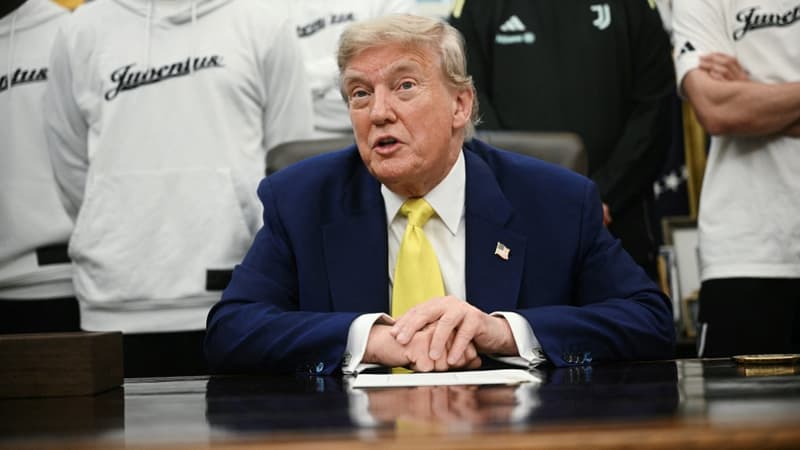The majority conservative Supreme Court granted this Friday, June 27, a considerable victory for the Trump administration on Friday, June 27, which limits the power of the judges to block the decisions of the Executive they consider illegal.
By six votes against three, those of the six conservatives against the three progressive, the highest jurisdiction of the United States considers that national decisions issued by federal judges “probably exceed the powers conferred by Congress in federal courts.”
“When a court concludes that the Executive Branch has acted illegally, the response of this Court cannot also go beyond its powers,” the majority of conservative Amy Coney Barrett wrote on behalf of the majority.
The US president welcomed “a gigantic victory.” On the other hand, the Court does not govern the constitutionality of the presidential decree of the US President returning to the land law, at the origin of this litigation.
The Decree on the Land Law, particularly criticized
The case is related to the suspension of this presidential decree, declared unconstitutional by all courts and federal appeals courses that have been seized.
The Trump administration asked the Court not to lift the suspension of the decree at this stage, but limit its scope to the only people who seized justice, denouncing what it describes as a drift.
As of January 20, his opening day, Donald Trump, signed this decree on US citizenship, one of the most criticized in his new mandate, saying that he wants to fight against illegal immigration.
He returns to the beginning of the Land Law, dedicated by the 14th amendment to the Constitution, that any child born in the United States is automatically American citizen and requests more than 150 years.
This decree prohibits the federal government from issuing passports, citizenship certificates or other documents to children whose mother remains illegally or temporarily in the United States, and whose father is not a US citizen or permanent resident, head of the famous “green card”.
The 14th amendment was adopted in 1868, after the civil war and the abolition of slavery, to guarantee the rights of the liberated slaves and their descendants.
Successive, republican and democratic administrations have often expressed their frustration towards these suspensions with the universal scope that allow a single federal judge to block their policy, on issues of national importance, such as abortion, immigration or even student loans.
This decision of the Supreme Court seems to be full of consequences for all disputes against the Trump administration, but also against the administrations of its successors.
Source: BFM TV


